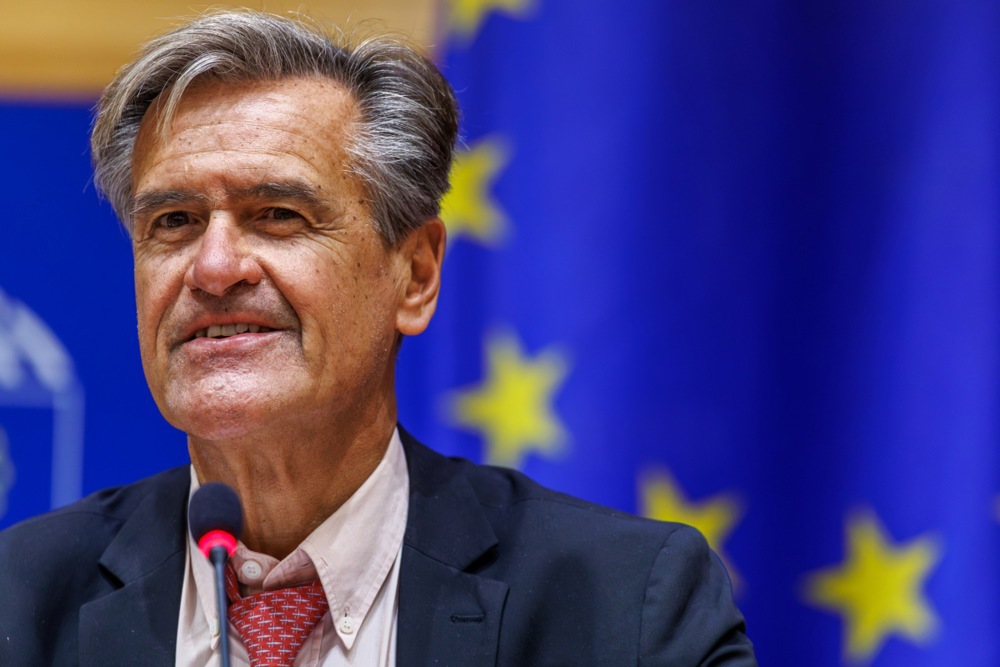Finland has given the go-ahead to a controversial temporary bill empowering Finnish border guards to deny entry and return asylum seekers attempting to cross the border from Russia.
The new law announced on July 12, named the Refusal of Entry Act, allows border agents to turn away migrants at the borders and remove those who made it in, without allowing them to request asylum.

A large majority of MPs voted in favour of the law, with 167 approving it and just 31, all from the Left, opposed. A two-thirds majority was needed in the 200-seat parliament. Finland has a right-wing government.
The measures are not set to be implemented automatically. Instead, they require joint approval from both the Finnish President and the government before taking effect. This process will be renewed monthly, ensuring a regular reassessment of the situation.
Opinion polls indicated most Finns were in favour of the move. In a study conducted in late June by Ilta-Sanomat, a well-known Finnish daily, just 19 per cent of respondents said they were against such a law.
“A State governed by the rule of law has the right to defend itself. It is up to us, as decision-makers, to find solutions that guarantee this security. The law turned out to be good,” Prime Minister Petteri Orpo said at a press conference after the vote.
According to Orpo, the European Commission strongly supported the tightening of border security. “The attitude is very positive. The Commission has shown great interest in how strong the rule of law is in Finland’s resolution of this issue,” he said.
He did add that he hoped that the law would never have to be used.
Finnish interior minister Mari Rantanen called the legislation a new “tool in our toolbox to prepare for various threats”.

Sebastian Tynkkynesn, MEP for the hard-right Finns Party, called it a “new historical border bill – the first of its kind”.
“This bill makes it possible to refuse entry to people who claim ‘asylum’ at our borders but are recognized as part of a hybrid operation: weaponised mass immigration against Finland organised by Russia,” he added.
“This sets an example for the European Union: We will need a similar law in every border country next to Russia. Finland has always contributed and will continue to contribute to the security of Europe.”
Se on siinä. #rajalaki pic.twitter.com/A0GGuEUakw
— Mari Rantanen (@MariPSRantanen) July 12, 2024
Critics said the law allowed for forms of migrant pushback that were illegal under European and international law.
Atte Harjanne, chairman of the Green parliamentary group in Finland, said: “For the first time, the Finnish Parliament has passed a law that conflicts with EU law and international treaties and that interprets the Constitution in a new way.”
Social Democratic Party chairman Antti Lindtman was less critical. “Although the law is not perfect, there are some tools to ensure border security,” he said.
Finland will extend the closure of its border with Russia by four weeks, the ministry of interior said, confirming earlier reports that all crossings would remain shut. https://t.co/lWf384Zs9Z
— Brussels Signal (@brusselssignal) January 11, 2024
Amnesty International said the new legislation was “inconsistent with EU law and must be rigorously scrutinised”.
“This law gravely undermines access to asylum and the protection from refoulement in Finland. It not only endangers the rights of people seeking safety, but it will also lead to arbitrariness and violence at the border.”
The NGO noted that Latvia, Lithuania and Poland had already introduced similar initiatives.
In a letter sent in June, Council of Europe’s Commissioner for Human Rights, Michael O’Flaherty, cautioned Finnish lawmakers against approving the bill. He wrote that “invocation of national security cannot be used as a carte blanche”.
Earlier, the UN Refugee Agency (UNHCR) claimed that Finland’s closing of the border “sets a dangerous precedent”.
“Even in times of emergency or so-called instrumentalization, countries must guarantee that those seeking protection have effective access to an asylum procedure. A possible consequence could be pushbacks … Pushback practices put people in danger, too often resulting in severe injuries, split of families or even deaths,” Philippe Leclerc UNHCR’s Regional Director for Europe said.
In a reaction to Brussels Signal, Tom Vandendriessche, MEP for Patriots for Europe who leads on migration, said: “We are being overwhelmed by illegal immigrants. Migration flows are even being used as a weapon by Lukashenko and Erdogan to threaten and blackmail Europe. The naivety of the ‘welcome culture’ must stop.
“Our people want security, and politicians must give it to them. Because security is the first civil right. Therefore, the borders must close for those who don’t belong here.
“Those who try to intrude must be sent back to where they came from. There needs to be a legal framework for pushbacks, at the nation-state level if necessary, at the European level if possible. Legalize it!,” he said.
Finland’s new border legislation was a direct response to Moscow’s alleged strategy of weaponising migration designed to destabilise the country, particularly in the wake of its NATO accession.
The situation had already prompted Finland to close its border with Russia for a period late last year.
Finland wants the European Union to find common measures to prevent what it calls instrumentalised migration, meaning a flow of migrants arriving from Russia without valid travel documents. https://t.co/CesfkTsOIR
— Brussels Signal (@brusselssignal) May 21, 2024





